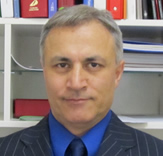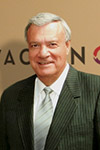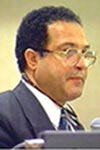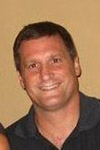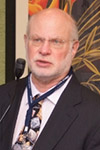
Charles J. Malemud
Editor-in-Chief, JCCI
Case Western Reserve University School of Medicine
USA
Biography
Charles J Malemud received the PhD from George Washington University in 1973 and completed postdoctoral studies at the State University of New York at Stony Brook in 1977. He is Professor of Medicine & Anatomy in the Division of Rheumatic Diseases and Senior Investigator in the Arthritis Research Laboratory at Case Western Reserve University School of Medicine. He has published more than 200 papers and reviews primarily in the field of chondrocyte biology. He is on the editorial board of several rheumatology, immunology and musculoskeletal journals and is Editor-in-Chief of the Journal of Clinical and Cellular Immunology.
Research Interest
Biology of the Musculoskeletal System Intracellular Signal Transduction Pathways Inflammation Pro-inflammatory, Anti-Inflammatory & Anabolic Cytokines Apoptosis Matrix metalloproteinases Osteoarthritis Rheumatoid Arthritis Fibromyalgia Autoimmune Disorders Research Interest
Biography
Dr. Vajdy is a Mucosal Immunologist with over 20 years of direct experience in designing mucosal and systemic adjuvants and vaccines, studying mucosal and systemic B and T cell immune induction mechanisms and long-term immunological memory. Following Ph.D. studentship at Goteborg University under the supervision of Dr. Nils Lycke, a prominent Mucosal Immunologist, Dr. Vajdy completed his first post doctoral fellowship with Dr. Katherine Knight, then President of the American Association of Immunologists. Dr. Vajdy completed his second post doctoral fellowship with Dr. Marian Neutra, an expert in Mucosal Biology and M cells of the intestinal Peyer’s patches. Dr. Vajdy was recruited to Chiron Corporation and Novartis Vaccines and Diagnostics where he remained for 9.5 years with increasing responsibilities including project leadership for a vaccine manufacturing platform technology. He also held simultaneous academic positions as Adjunct Clinical Assistant Professor with the Department of Internal Medicine, Division of Infectious Diseases and visitingassociate professor at Department of Medical Microbiology and Immunology, University of California, Davis. He was also a Faculty Member with the Graduate Group, Department of Comparative Pathology, University of California, Davis. In these capacities, he trained a Ph.D. student and 3 post-doctoral fellows and wrote collaborative NIH grants. Dr. Vajdy has authored 50 papers and manuscripts, 45 of which have been published and the remaining are submitted or are in manuscript form. Dr. Vajdy is the editor of a book entitled “immunity against mucosal pathogens†(Springer, 2008). Dr. Vajdy was the PI and recipient of an R21 grant (R21 AI50430-01). He was also an investigator on several multi-project NIH grants. Dr. Vajdy is the inventor of 6 patents owned by Novartis Vaccines as well as one patent owned fully by EpitoGenesis Inc.
Research Interest
Mucosal Immunology, Vaccines
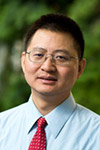
Yongqun “Oliver†He
Associate Professor
University of Michigan Medical School
USA
Biography
I am Oliver, Associate Professor in Unit for Laboratory Animal Medicine (ULAM) and Department of Microbiology and Immunology. I am also an affiliated member of the Center for Computational Medicine and Biology (CCMB) and a member of the (Comprehensive Cancer Center) in the University of Michigan (UM) Medical School. Our laboratory research is focused on host-Brucella interaction and bioinformatics. I had my D.V.M. education at Jiangxi Agricultural University and my M.S. degree (Co-advisors: Professors Zhongzhi Zhang and Hanchun Yang) in Infectious Diseases and Veterinary Preventive Medicine at China Agricultural University in China. I obtained my professional assistant veterinarian license during my two-year employment at Beijing Xijiao Livestock and Poultry Company, Beijing, China. My training in Brucella research started in 1996 in Dr. Gerhardt Schurig’s immunology laboratory at the Virginia Polytechnic Institute and State University (Virginia Tech). I obtained my Ph.D. in Dr. Schurig's lab in 2000. I then worked in the same lab as a postdoc for half a year. I obtained my M.S. degree (research advisor: Dr. Pedro Mendes) in computer science in Virginia Tech with a focus on bioinformatics in May 2002. After graduation I worked as a senior research associate for three years in Dr. Bruno Sobral’s group at the Virginia Bioinformatics Institute (VBI). I joined UM in July 2005 as an assistant professor and became an associate professor in September 2011 (with tenure).
Research Interest
Yongqun Oliver research interest are Brucella pathogenesis, vaccine research and development and Bioinformatics.


